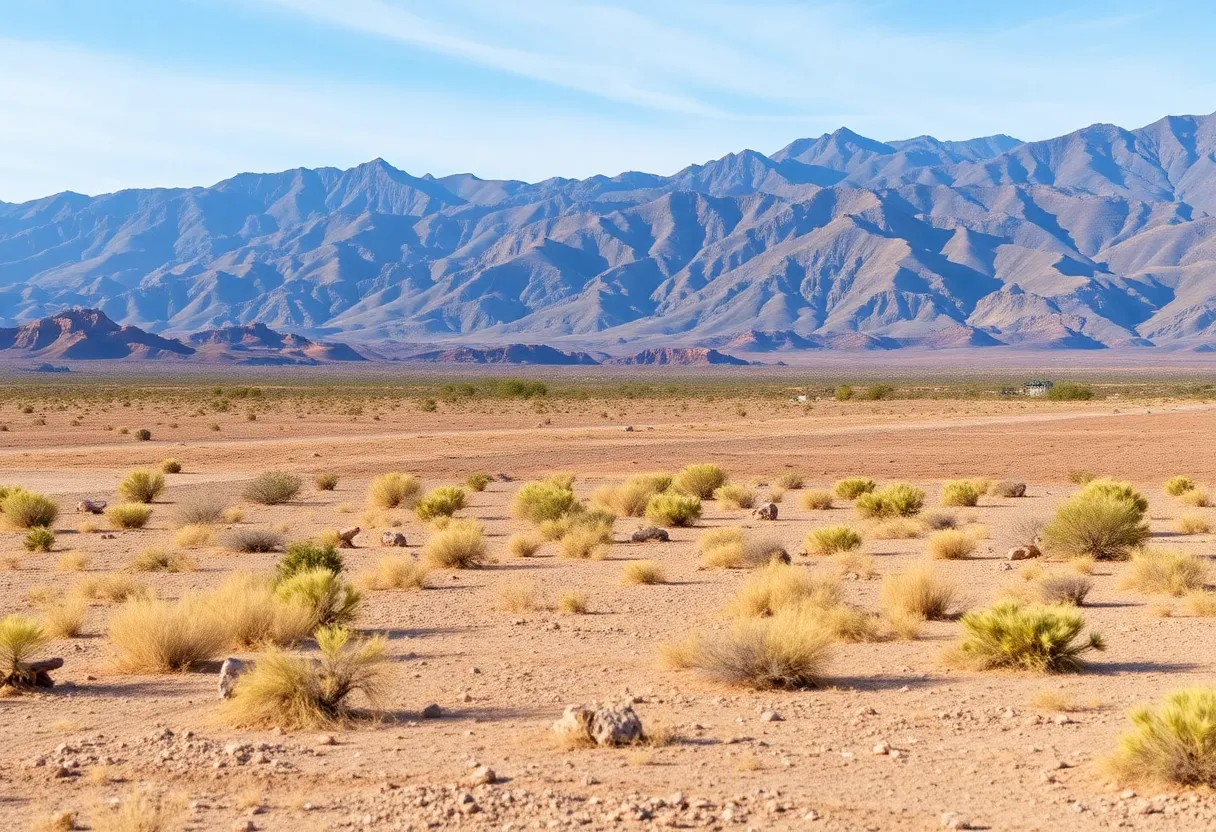News Summary
A panel led by U.S. Representative Dina Titus has outlined major barriers related to federal land ownership in Southern Nevada, emphasizing the need to access underutilized land to tackle the housing crisis. With over 82,000 acres of potential development land federally owned, local leaders express frustration over stagnant residential development and the urgent need for zoning reforms. Concerns about water availability and climate change also underscore the need for sustainable housing solutions as Las Vegas’s population grows.
Las Vegas – A panel discussion organized by U.S. Representative Dina Titus has revealed significant barriers posed by the federal government in accessing underutilized land in Southern Nevada, which could play a pivotal role in addressing the region’s ongoing housing crisis. Over 82,000 acres of potential development land remain untapped in the Las Vegas metro area, but much of it is under federal ownership.
According to Clark County, a staggering 88% of land within the county is federally owned, with over half managed by the Bureau of Land Management (BLM). The BLM currently oversees approximately 2.6 million acres in Clark County and has not made land available for private development since the passage of the Southern Nevada Public Land Management Act in 1998. This long-standing restraint has been a focal point of frustration for local developers and policymakers alike.
Panel members expressed disappointment over the absence of BLM representatives during the discussion, highlighting a lack of engagement from the agency despite invitations to attend. Concerns were voiced that the current federal framework stifles potential residential development opportunities crucial for a rapidly expanding population and escalating housing prices.
The CEO of the Southern Nevada Home Builders Association emphasized the dire need for improved access to public land as an essential step in alleviating the persistent housing shortage. A recent study conducted by the UNLV Lied Center for Real Estate indicates that there has been significant under-building in residential projects across the valley, with the issue remaining unresolved for approximately 15 years. Further alarming data from an Applied Analysis study warns that Southern Nevada could exhaust its developable land resources by the year 2032 if current patterns continue.
Panelists also pointed to critical issues surrounding water availability and the effects of climate change as urgent matters requiring attention. The Las Vegas Valley is projected to see its population exceed 3 million by 2045, compounded by anticipated reductions of up to 7% in its share of Colorado River water. The region has witnessed a significant climate shift, with temperatures rising by 5.9 degrees since the 1970s.
Outdated zoning requirements were acknowledged as a key impediment to residential development, underlining the need for comprehensive reform. One potential legislative measure, the Clark County Lands Bill, could open up approximately 25,000 acres for development over the next 50 years. However, this proposal raises critical concerns about the sustainability of water use in an already water-scarce environment.
Environmental advocates have cautioned that the Lands Bill may exacerbate existing water scarcity challenges and contribute to continued unsustainable development patterns. In this context, critics, including Rep. Titus, have advocated for stronger public input and protections within legislation aimed at the sale of public land, with particular emphasis on the need for guarantees regarding affordable housing availability.
As housing prices and rental rates in Las Vegas near record highs, the urgency for holistic strategies focused on urban sprawl, water conservation, and affordable housing solutions has never been more pressing. Panel discussions also explored the implications of proposed federal legislation regarding land sales across Nevada, emphasizing broader concerns related to sustainability and environmental impact in shaping the future landscape of Southern Nevada.
In conclusion, stakeholders from various sectors recognize the critical need for actionable plans to untangle the web of federal barriers in land use, which could pave the way for vital development aimed at addressing the housing crisis afflicting the region.
Deeper Dive: News & Info About This Topic
HERE Resources
Significant Developments in Las Vegas This Week
Las Vegas Councilmember Resigns for Federal Position
Las Vegas Faces Tourism Decline Amid Rising Costs
Rental Scams on the Rise in Southern Nevada
Condominium Prices Decline in North Las Vegas
North Las Vegas Sees Drop in Condo Prices
Las Vegas Residents Warned About Ticket Scams and Fraudulent Texts
Las Vegas Expands Recuperative Care Center for Homeless
Las Vegas Faces Declining Tourism This Summer
Nevada Legislature Shelves Key Housing Bills
Additional Resources
- Nevada Current: Federal Lands Bill and Affordable Housing
- Wikipedia: Housing in the United States
- 8 News Now: Public Lands Bill in Las Vegas
- Google Search: Las Vegas housing crisis
- Fox 5 Vegas: Public Land Sale Proposal
- Encyclopedia Britannica: Public Land
- Nevada Current: Developers vs Conservationists
- Google News: Southern Nevada land development

Author: STAFF HERE LAS VEGAS WRITER
The LAS VEGAS STAFF WRITER represents the experienced team at HERELasVegas.com, your go-to source for actionable local news and information in Las Vegas, Clark County, and beyond. Specializing in "news you can use," we cover essential topics like product reviews for personal and business needs, local business directories, politics, real estate trends, neighborhood insights, and state news affecting the area—with deep expertise drawn from years of dedicated reporting and strong community input, including local press releases and business updates. We deliver top reporting on high-value events such as Electric Daisy Carnival, World Series of Poker, and Consumer Electronics Show. Our coverage extends to key organizations like the Las Vegas Chamber of Commerce and Three Square Food Bank, plus leading businesses in hospitality and entertainment that power the local economy such as MGM Resorts International, Caesars Entertainment, and Las Vegas Sands. As part of the broader HERE network, we provide comprehensive, credible insights into Nevada's dynamic landscape.



